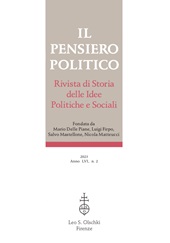Les fèves et le tirage au sort : une question ouverte à Florence du XIVe au XVIe siècle
P. 132-153
The Florentine republican moment, between 1494 and 1512, demonstrates that elections acquires greater relevance in certain moments and circumstances (the Machiavellian qualità dei tempi). Solutions are not necessarily binary and they often involve a composition between distinct proposals. The hypothesis is that if before 1494 the issue of elections primarily depends on opposing perceptions and beliefs within a system of factions; after 1494, other elements modify the current positions.
Overall, relevant elements include the awareness on the part of the mediocri to have the ability to block institutions without even rebelling, the government's efficacy, and its ability to react in the face of foreseen and unforeseen events, which are crucial in times of permanent war. This is why the duration of mandates acquires a new role in the matter; and it is related to the reform of electoral methods. The third part of the contribution proposes an analysis of Francesco Guicciardini's short text dedicated to electoral methods as a text of synthetic reflection and not as a text intervening in an open debate. [Publisher's text]
-
Articles from the same issue (available individually)
-
Information
DOI: 10.1400/297020
ISSN: 2035-7958
KEYWORDS
- Republic of Florence, XVth Century, Elections, Guicciardini


